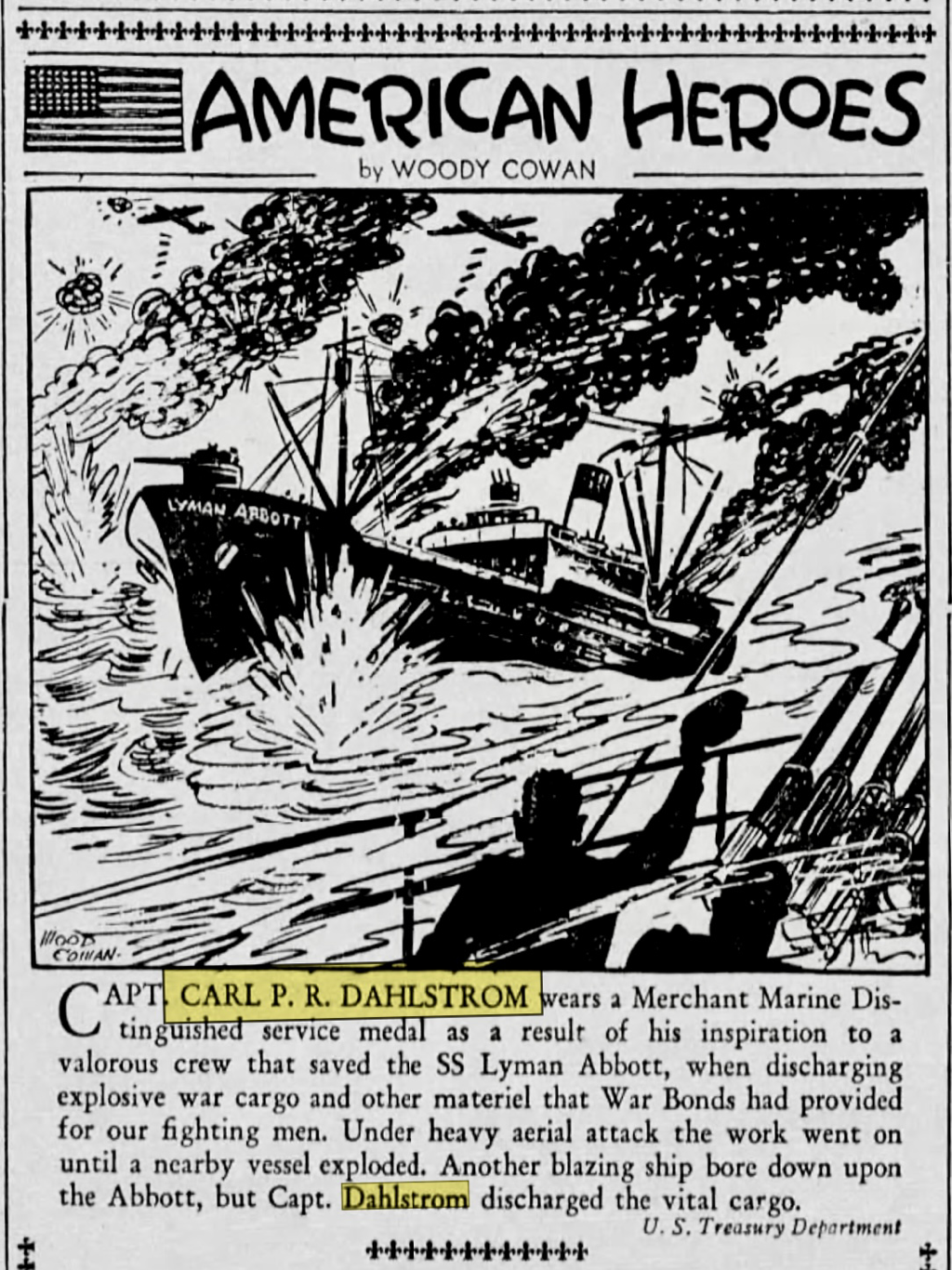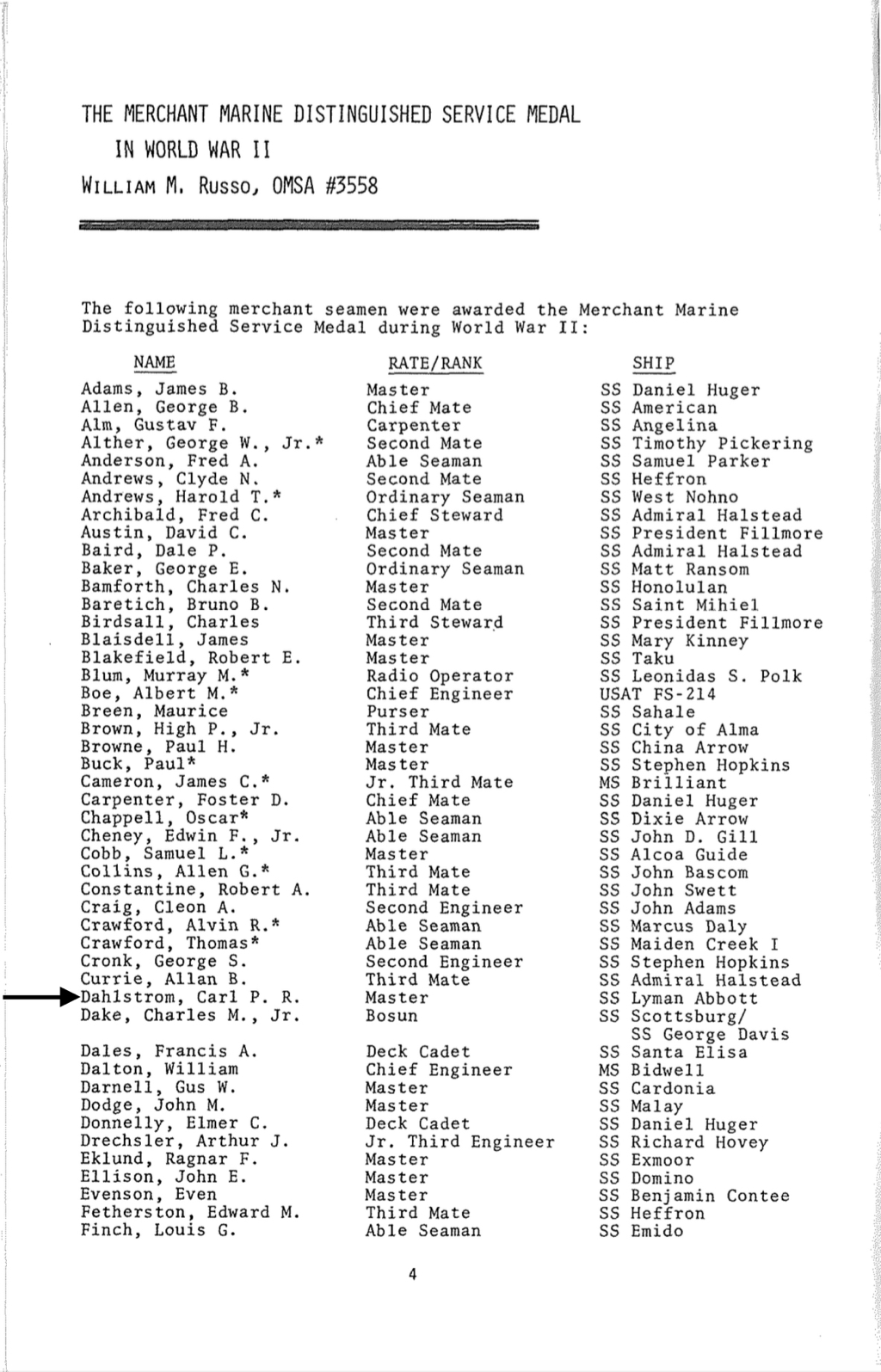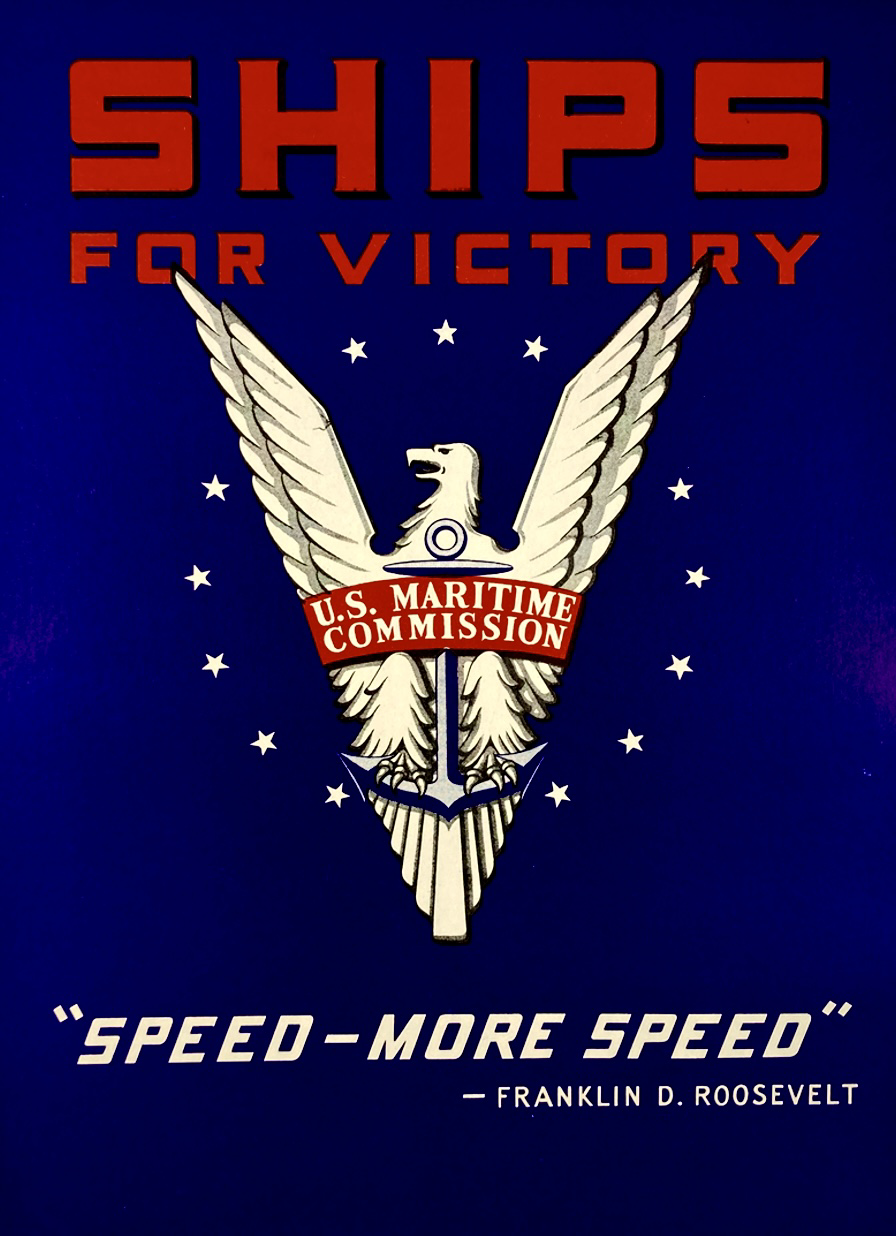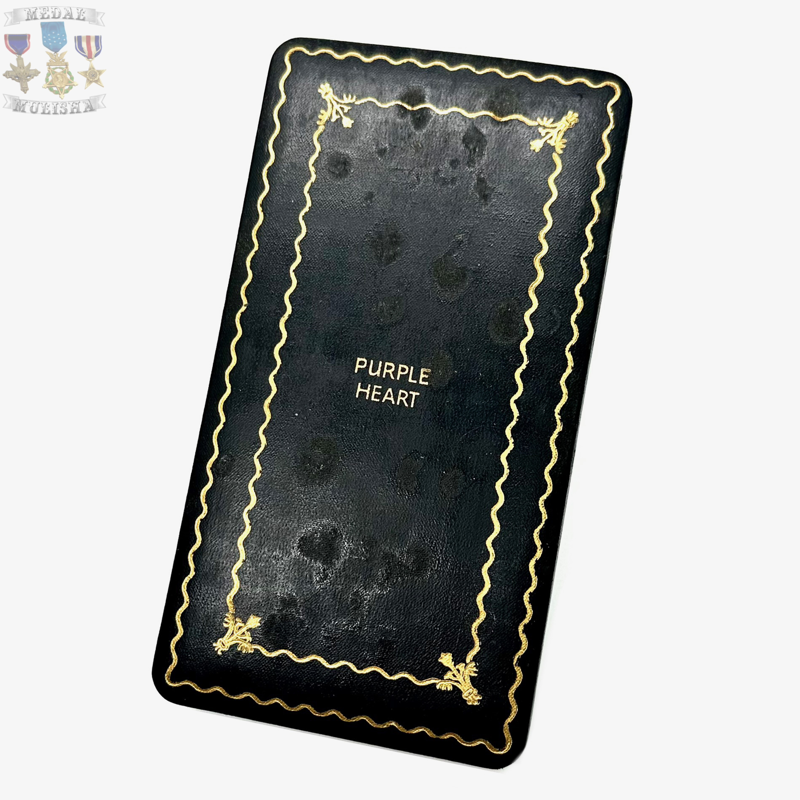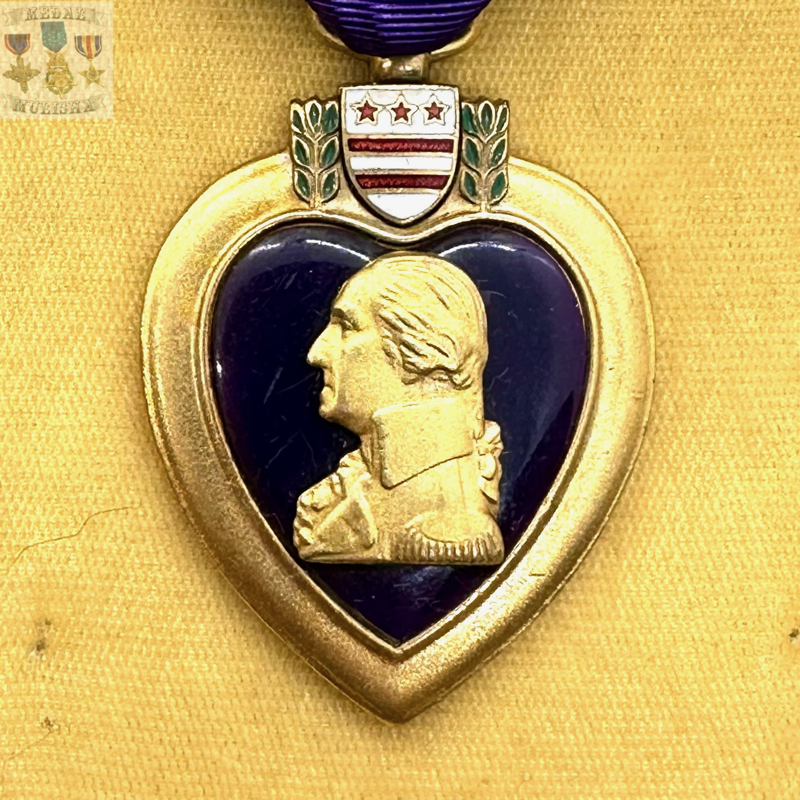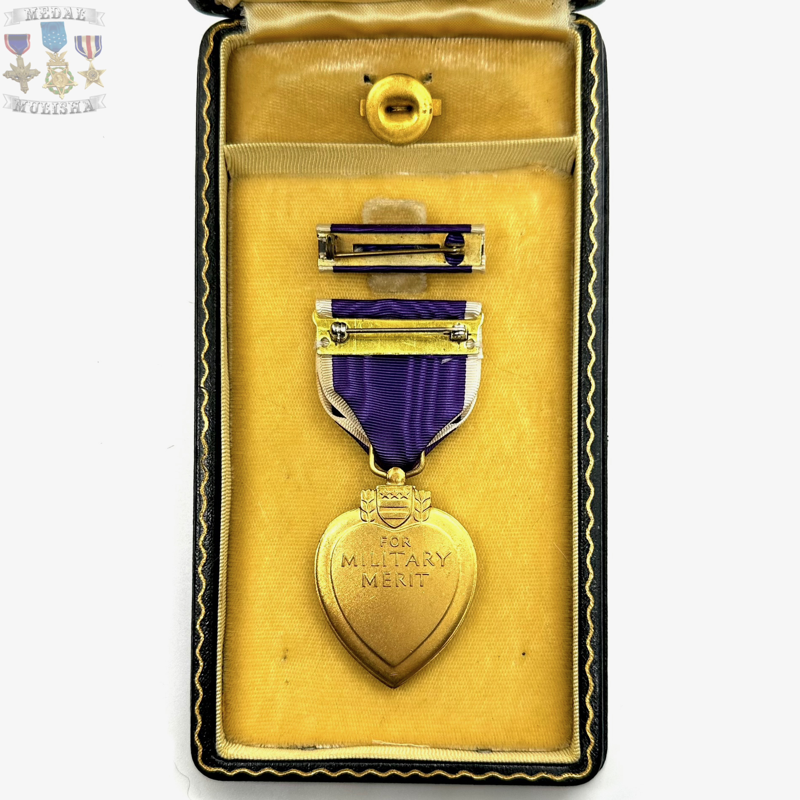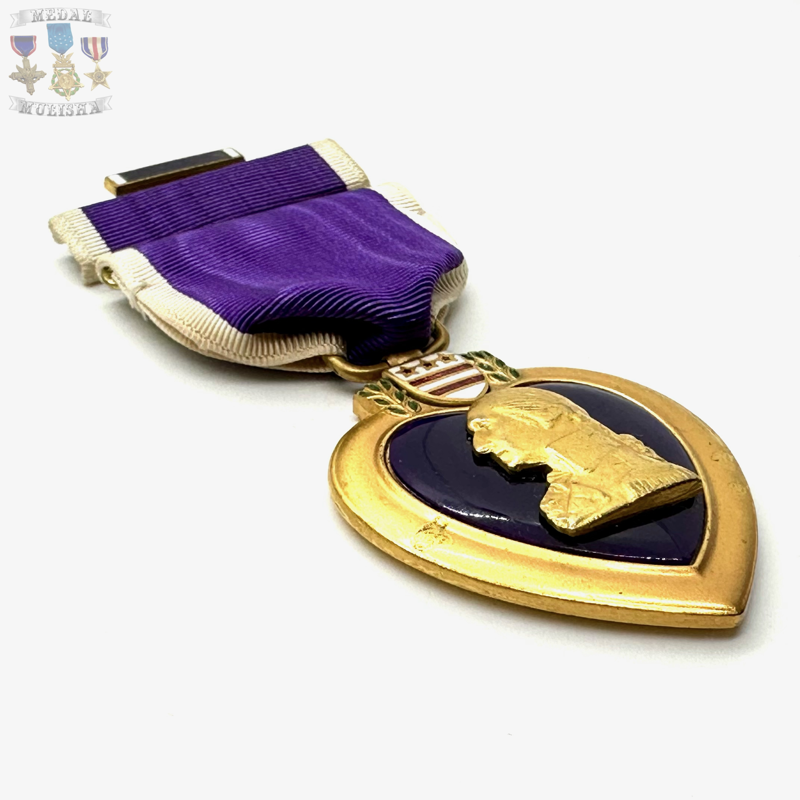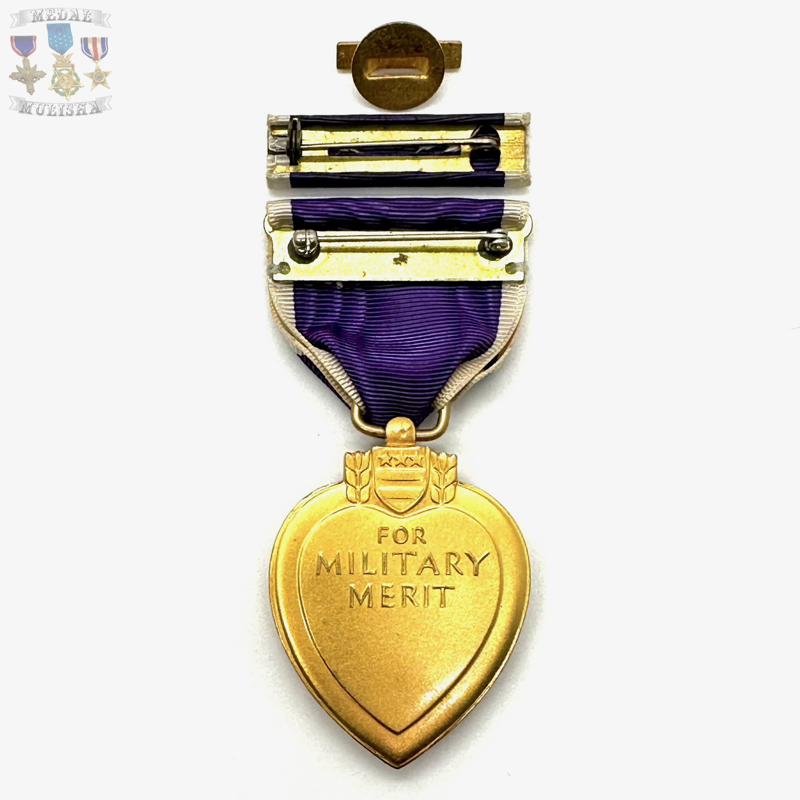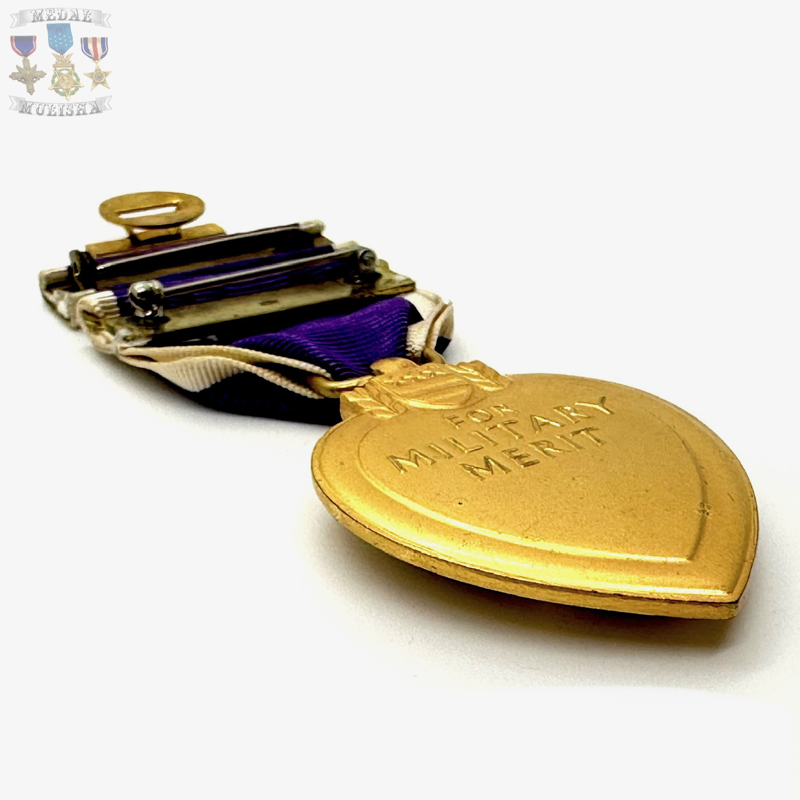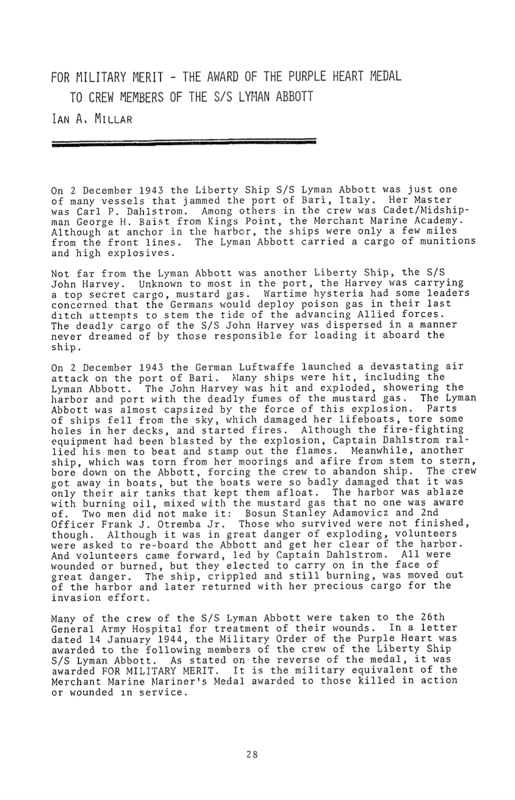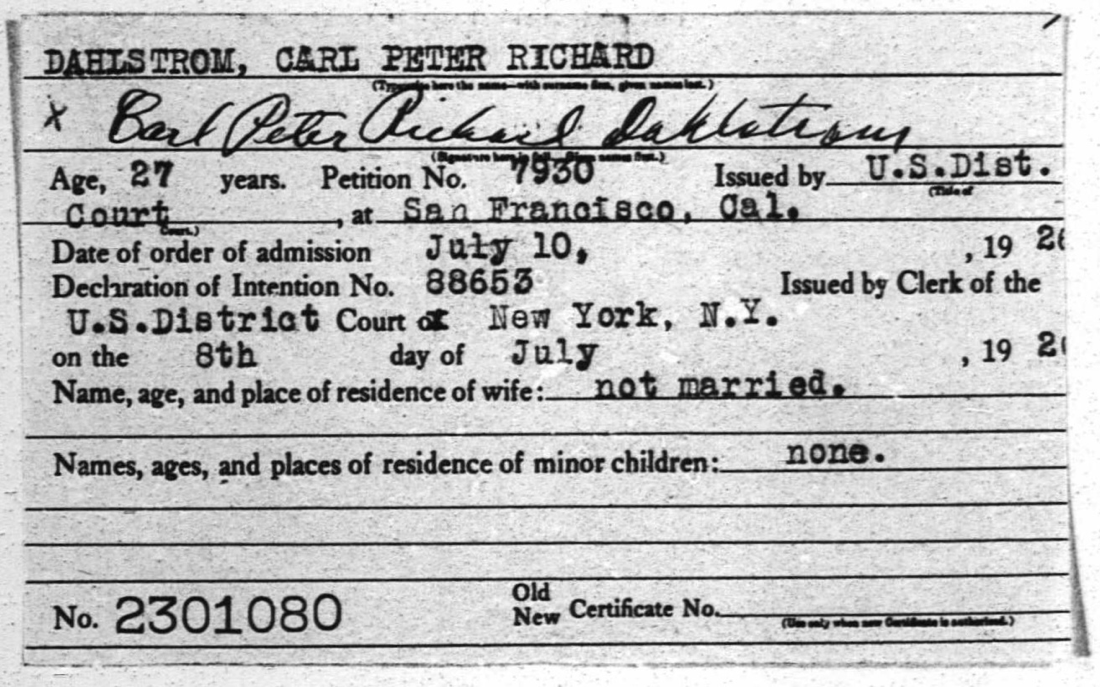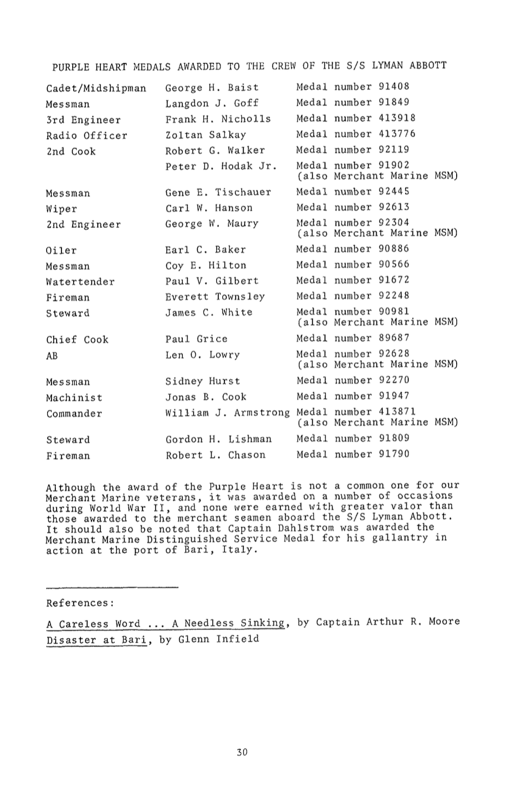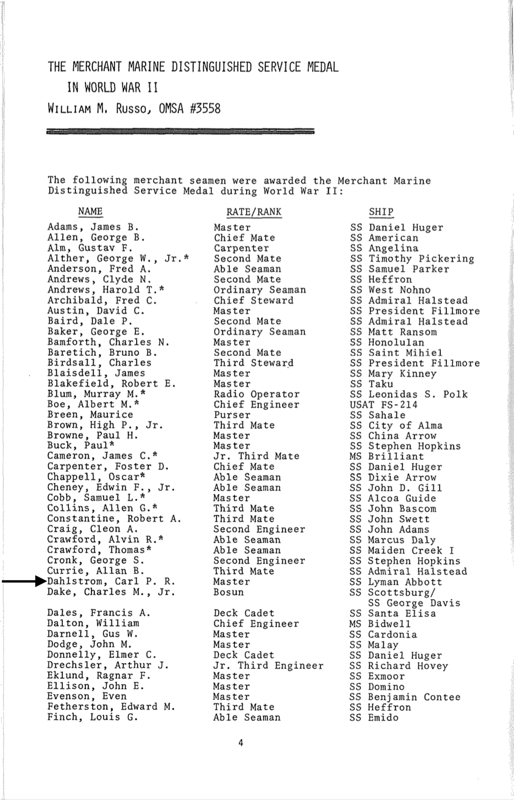Captain Carl Peter Richard Dahlstrom
The officers and men of the Merchant Marine, by their devotion to duty in the face of enemy action, as well as natural dangers of the sea, have brought us the tools to finish the job. Their contribution to final victory will be long remembered.
--General Dwight D. Eisenhower on National Maritime Day, 1945
--General Dwight D. Eisenhower on National Maritime Day, 1945
One of the best kept secrets of the last war was the fact that the Allies kept stocks of poison gas close to most front line positions. It was felt that sooner or later Germany would use gas warfare and it was felt that the allies needed to have their own stockpile to be able to counter any such attack. Winston Churchill gave the idea his support under certain circumstances, i.e.: if Britain was invaded and had our backs to the wall. He also said that it might suit Allied purposes to use it during a future invasion of Europe. President Roosevelt had an abhorrence of this type of warfare but never-the-less he authorised a gas production program. Several elite and secret chemical warfare groups were set up to specialise in the transportation of Phosgene and Mustard gas and in November 1943 a shipment of Mustard gas bombes was taken on board the American Liberty ship SS Lyman Abbott & SS John Harvey
One of the most disastrous bombing attack against allied ships during the entire war took place at Bari, Italy, on December 2nd 1943, there were over 30 Allied ships in port, 25 of them being merchantmen. SS Lyman Abbott was one of these merchantmen and while all the ships had dangerous cargoes, the one on the Lyman Abbott and John Harvey was by far the most dangerous, although this fact was not known by the vast majority of port personnel. The process of getting the cargoes unloaded in the fastest possible time meant that the port lay bathed by ships arc lights and quayside working lights.
1930 hours over one hundred German Junkers 88 bombers roared in from seaward and began to bomb the packed harbour. By the time they flew away twenty minutes later, 17 ships were sunk and 8 badly damaged. The SS John Harvey was ablaze from stem to stern. Suddenly she disintegrated in a huge explosion which killed her entire crew together with an eight man special gas team which had accompanied the deadly cargo.
Lyman Abbott escaped direct hits although a near miss tore up her decks and started a fire.
1930 hours over one hundred German Junkers 88 bombers roared in from seaward and began to bomb the packed harbour. By the time they flew away twenty minutes later, 17 ships were sunk and 8 badly damaged. The SS John Harvey was ablaze from stem to stern. Suddenly she disintegrated in a huge explosion which killed her entire crew together with an eight man special gas team which had accompanied the deadly cargo.
Lyman Abbott escaped direct hits although a near miss tore up her decks and started a fire.
Carl Peter Richard Dahlstrom, Master of SS Lyman Abbott won his award for heroism in the line of duty. His citation reads:
‘In a port only a few miles behind the actual battlefront, SS Lyman Abbott was discharging explosive war cargo, when the entire harbour area was hit by a devastating air attack. The force of the explosion of a nearby ship nearly capsized the Lyman Abbott and a hail of wreckage damaged her lifeboats, tore great hole in her deck, and started fires. Though fire hoses lay uselessly severed, and fire extinguishers had been blasted to the deck where they spent their charges, Captain Dahlstrom rallied his men to beat and stamp out the flames until another ship, torn from her moorings and ablaze from stem to stern, bore down upon Lyman Abbott and forced her crew to abandon ship.
By this time the harbour waters were ablaze with burning oil, but he landed his men through the flames in boats so damaged they were only kept from sinking by the buoyancy of their air tanks. But the Lyman Abbott cargo was vitally needed in support of the invasion and she had to be moved from the burning harbour before she exploded. Volunteers from her crew, under the personal leadership of Captain Dahlstrom, all in some degree wounded or burned, immediately responded – took the crippled and still burning ship out of port – and later returned her to discharge her critical combat material.
Captain Dahlstrom’s courageous leadership, in keeping with the finest traditions of the United States Merchant Marine, was the inspiration for a valorous crew which would not yield to defeat.’
‘In a port only a few miles behind the actual battlefront, SS Lyman Abbott was discharging explosive war cargo, when the entire harbour area was hit by a devastating air attack. The force of the explosion of a nearby ship nearly capsized the Lyman Abbott and a hail of wreckage damaged her lifeboats, tore great hole in her deck, and started fires. Though fire hoses lay uselessly severed, and fire extinguishers had been blasted to the deck where they spent their charges, Captain Dahlstrom rallied his men to beat and stamp out the flames until another ship, torn from her moorings and ablaze from stem to stern, bore down upon Lyman Abbott and forced her crew to abandon ship.
By this time the harbour waters were ablaze with burning oil, but he landed his men through the flames in boats so damaged they were only kept from sinking by the buoyancy of their air tanks. But the Lyman Abbott cargo was vitally needed in support of the invasion and she had to be moved from the burning harbour before she exploded. Volunteers from her crew, under the personal leadership of Captain Dahlstrom, all in some degree wounded or burned, immediately responded – took the crippled and still burning ship out of port – and later returned her to discharge her critical combat material.
Captain Dahlstrom’s courageous leadership, in keeping with the finest traditions of the United States Merchant Marine, was the inspiration for a valorous crew which would not yield to defeat.’

